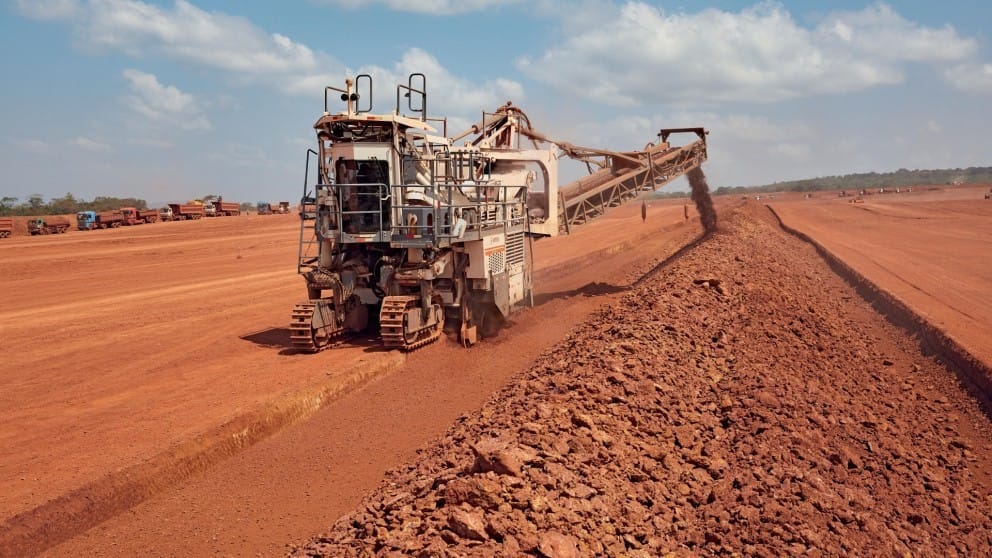Guinea’s bauxite exports reached a record 48.6 million metric tons in the first quarter of 2025, marking a 39% year-on-year increase, even as regulatory pressures sidelined several major operators.
The West African nation, the world’s second-largest bauxite producer, saw most of its exports head to China, where aluminum production is steadily climbing. According to China’s National Bureau of Statistics, the country produced 18.59 million tons of aluminum in the first five months of the year, a 4% increase compared to the same period in 2024.
Data from Guinea’s Ministry of Mines and Geology show a sharp rise in shipping activity, with 312 vessels departing in the first quarter, up from 225 ships carrying 34.9 million tons during the same period last year. This growth occurred despite the continuation of an export ban on Emirates Global Aluminium’s local subsidiary, which had shipped 3.6 million tons in Q1 2024. Other major exporters, including AGB2A/SDM—a China Hongqiao affiliate—also faced regulatory restrictions.
Nevertheless, export volumes have remained strong. Weekly shipments currently average 3.7 million tons, setting the pace for a projected annual total of 199 million tons in 2025, a significant jump from the 146 million tons recorded in 2024.
“This performance reflects the sector’s resilience,” said Bernabe Sanchez, a mineral economist who specializes in Guinea’s extractive industries. “Chinese demand has underpinned Guinea’s bauxite boom since 2016, and it continues to drive growth despite political and regulatory uncertainty.”
Chinese-led companies were at the forefront of the first-quarter export surge. Société Minière de Boké (SMB) led the field with 18.4 million tons—up 41% from Q1 last year. State-owned Chalco increased its output by 35%, shipping 5.1 million tons, while AGB2A/SDM contributed eight million tons, despite facing operational constraints.
The data also highlights China’s tightening grip on Guinea’s bauxite industry. In 2024, China imported 158.7 million tons of bauxite, with nearly 70% of that sourced from Guinea.
In response to the export boom, Guinea has expanded its port infrastructure to accommodate increased demand and improve shipping efficiency. These developments are central to sustaining the country’s growing role in the global aluminum supply chain.
Even as Guinea continues to undergo regulatory reforms and remains under military governance, the strength of its mining sector remains a critical pillar of the economy—anchored by foreign demand and strategic mineral exports.



